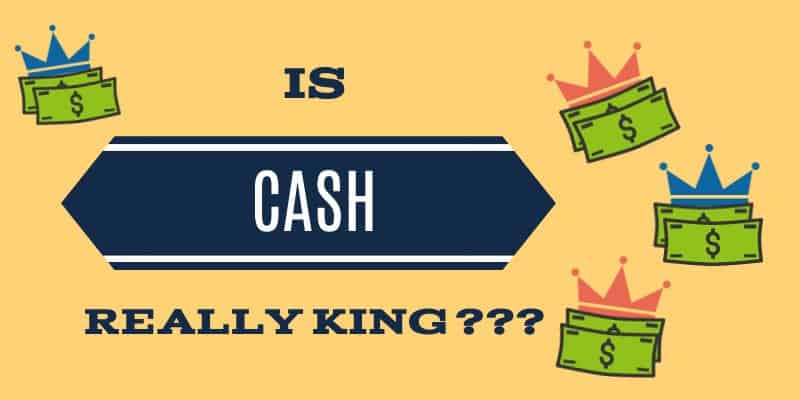Operant conditioning was a phrase that B.F. Skinner utilized in describing his beliefs that the motivations of people and the internal thought processes that created these motivations did not need to be looked at very hard in order to explain their behavior. He suggested that instead of looking internally to explain behavior, that we should look at external causes of human behavior and make observations from that standpoint.
Ultimately, people tend to fall into one of these two camps when it comes to explaining their behavior:
Positive Reinforcement or Incentives – positive reinforcement involves adding a positive stimulus following a behavior, such as performing a safe act that makes it more likely that the behavior will occur again in the future. An example of this would be rewarding an employee for working extra hours to help a valued customer fix a problem.
Negative Reinforcement or Disincentives- negative reinforcement, as described by B.F. Skinner, is when a response or behavior is strengthened by stopping, removing, or avoiding a negative outcome or aversive stimulus. One example would be a safety incentive program where your employees engage in certain actions to avoid a negative result.
In the end, an effective employee recognition program will have a balance of both types of reinforcements as this will allow the greatest amount of motivators that can be applied to all of your employees.
Well, now you might be asking, “What does this have to do with Cash vs. Non-cash awards? Quite a bit actually and I am about to hit on it.
What Makes an Employee Recognition Program Work?
You likely have heard of Maslow’s hierarchy of needs. As this is a motivational theory in psychology that is comprised of a model of five tiers of human needs, we need not go any further than here to understand what factors need to be in play in order for a recognition or incentive program to be successful.

Your organization must have a few basic workplace conditions in place as the building blocks that will meet the basic needs that employees require in order to just feel comfortable in your corporate environment. Things like workplace safety, cleanliness, space, and a secure feeling in their environment.
These “basic workplace needs” will generally bring an employee from dissatisfied to neutral, but are critical building blocks for ultimately increasing workplace satisfaction.
When it comes to taking employees from neutral to satisfied and to continually elevate their feelings towards your organization you have to meet their needs higher up the pyramid. How can you increase their relationships with their team and other members of the organization? How can you continually challenge your employees to address their desire to have challenging and meaningful work that contributes to their success, that of their team, and for the organization as a whole? Ultimately, if you can contribute to getting an employee to the top of the pyramid where they are using their creativeness and ideas to exploit their full potential, your employee recognition program will succeed.
This leads to the topic of the article. Cash will not get your employees to the top of the pyramid.
Why Non-Cash Awards Are More Powerful Than Cash Awards
Ask someone to work harder and they’ll expect to be paid more. Most people on the surface prefer cash. Cash is a form of compensation and increased compensation will decrease workplace dissatisfaction. How will cash affect your recognition program? Cash is like an additional source of income and not an actual reward. It becomes expected and makes it almost impossible to change the terms of your recognition programs. Take cash out of your recognition or incentive program and that satisfied employee will soon become dissatisfied as their “entitlement” is now gone.
Cash is an ineffective motivator long-term and there are many reasons why it falls short. Cash does not have any trophy value and is forgotten once spent or simply absorbed into household funds. When was the last time you heard someone bragging about receiving cash? They do however brag over a trip or experience they earned or a new high-ticket item they chose. There’s a remembered memory of the item or experience, whereas, with cash, it’s just spent and gone.
Cash incentives do not motivate people to exceed established goals or performance. Cash becomes part of one’s perceived compensation, which creates a disconnect between goal and reward. With Non-Cash awards, the memory of the goal is remembered and removes the feelings of guilt. Has this happened to you? Have you ever received a cash award and felt guilty about spending the money on anything other than paying bills? Or did you take your cash award and buy your family a trip to Disney World? My guess is that you spent the money on paying bills. That’s what usually happens.
With Non-Cash awards, your participants can make gift selections that make sense to them and their family, which creates the “trophy value”. There is something tangible to keep and this enforces the memory of the goal achieved or behavior exhibited. Isn’t that ultimately why recognition programs exist? Recognition exists to drive behavior, participation and builds personal esteem.
If you reward with cash, your employees will consider it as compensation and it will become expected over time. Cash awards force employees to make a choice between something they want versus something they need—an item of need versus an item of self-reward. And, rather than coming away with positive memories of the incentive, they are more likely to recall a sense of guilt regarding the experience.
Contact CoreCentive today and we can walk you through what makes up an effective non-cash incentive program, and all the components to help you achieve the highest rate of ROI on your employee incentive programs


